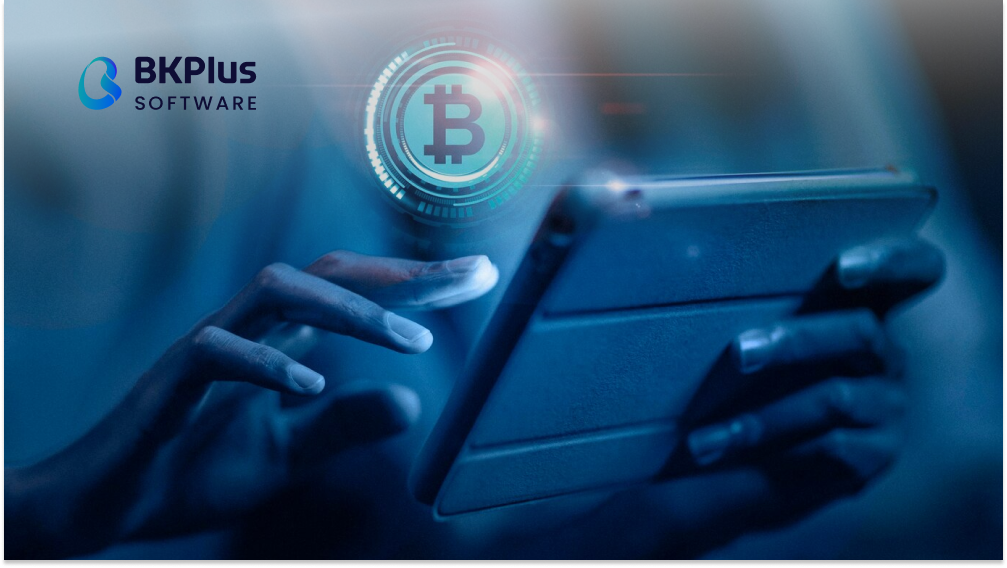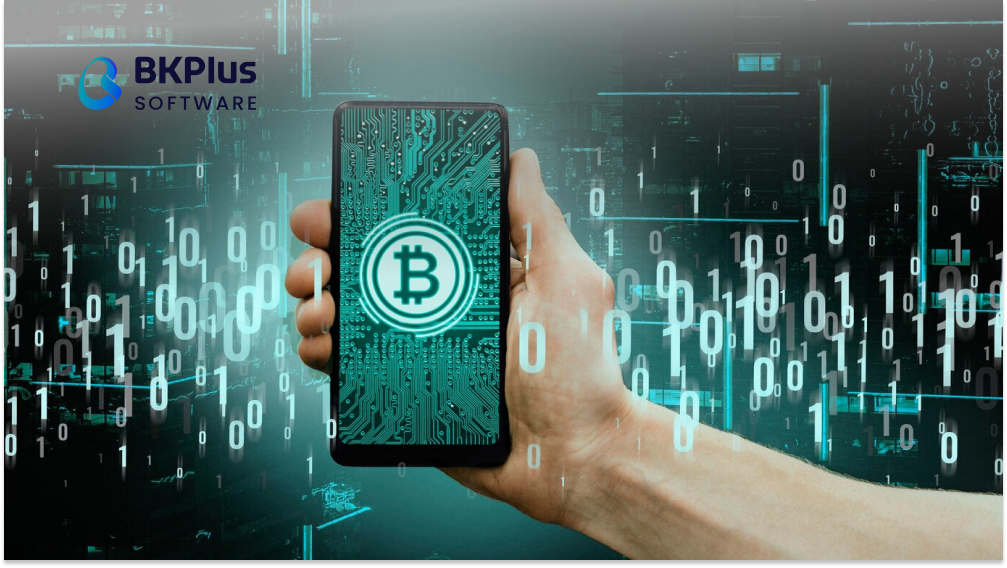Blockchain apps are revolutionizing the digital world with secure, transparent solutions. This guide explores what blockchain apps are, their benefits, use cases, development process, challenges, and future potential. Dive into how they’re reshaping industries!
What is a Blockchain App?
Imagine a digital ledger shared across countless computers, where every transaction is locked into a block and linked to the one before it, forming an unbreakable chain. To understand blockchain apps, we first need to grasp this foundational concept of blockchain technology. It’s a decentralized system that ensures data is secure, transparent, and unchangeable, eliminating the need for a central authority.

A blockchain app, often called a decentralized application (dApp), is software that harnesses this technology to deliver services directly on a blockchain network instead of a traditional centralized server. Whether it’s facilitating peer-to-peer payments or managing complex supply chains, a blockchain app leverages the inherent strengths of blockchain—security, immutability, and decentralization—to offer innovative solutions. These applications can vary widely, from cryptocurrency wallets to platforms managing smart contracts, which are self-executing agreements coded to automate processes.
Types of Blockchain Apps
Blockchain apps come in different flavors depending on the network they’re built on. Public blockchain apps, like those on Ethereum, are open to anyone, allowing global participation in decentralized ecosystems. In contrast, private blockchain apps operate on restricted networks, often tailored for enterprise use where only authorized users can access the system. Hybrid models also exist, blending elements of both to suit specific needs. This flexibility makes them adaptable to a vast range of purposes, from open financial platforms to secure corporate tools.
Benefits of Blockchain Apps
Blockchain apps bring a host of advantages that set them apart from conventional applications, offering compelling reasons for businesses and individuals to adopt them. Blockchain apps offer numerous benefits that traditional centralized applications cannot match, and here’s why they’re gaining traction.
Security
One standout feature of a blockchain app is its robust security. By distributing data across a network of computers and securing it with advanced cryptography, these apps are incredibly resistant to tampering. Each transaction must be verified by multiple nodes—computers in the network—before it’s added to the chain, making unauthorized changes nearly impossible. For instance, a blockchain app handling financial transactions can protect users from fraud far better than a traditional database prone to single-point breaches.
Transparency
Transparency is another hallmark of blockchain apps. Every transaction is recorded on a public ledger, visible to all participants in real time. This openness builds trust, as users can independently verify actions without relying on a third party. Consider a blockchain app used for charitable donations: donors can track exactly how their funds are spent, ensuring accountability at every step.
Efficiency
Efficiency shines through in blockchain apps by cutting out intermediaries and automating processes. Smart contracts, for example, execute predefined rules automatically when conditions are met—think of a blockchain app that processes insurance claims instantly upon verification, bypassing lengthy manual reviews. This streamlining saves time and boosts productivity across industries.

Cost Reduction
By eliminating middlemen and reducing paperwork, blockchain apps can slash operational costs. In cross-border payments, where traditional systems charge hefty fees and take days, a blockchain app can settle transactions in minutes at a fraction of the cost. Businesses adopting these apps often see significant savings, making them a cost-effective alternative.
Decentralization
Unlike centralized systems vulnerable to outages or attacks, a blockchain app’s decentralized nature ensures resilience. With no single point of failure, the app remains operational even if parts of the network go down. This reliability is invaluable for critical applications like healthcare record management, where uninterrupted access is essential.
Use Cases of Blockchain Apps
Blockchain apps are being utilized across various industries, demonstrating their versatility and potential. Their ability to solve real-world problems has sparked widespread interest and adoption.
Financial Services
In finance, blockchain apps are game-changers. Cryptocurrencies like Bitcoin and Ethereum power secure, borderless transactions without banks. Beyond that, decentralized finance (DeFi) platforms built as blockchain apps offer lending, borrowing, and trading services directly to users, disrupting traditional financial institutions with lower fees and greater accessibility.
Supply Chain Management
Supply chains benefit immensely from blockchain apps. These applications track goods from origin to destination, ensuring authenticity and reducing fraud. A blockchain app can verify a diamond’s journey from mine to retailer, giving consumers confidence in its ethical sourcing while helping companies combat counterfeit products.
Healthcare
In healthcare, blockchain apps secure sensitive data like medical records, granting patients control over who accesses their information. They also track pharmaceutical supply chains, ensuring drugs are genuine and safe. A hospital using a blockchain app can instantly verify a medication’s history, protecting patients from counterfeit risks.
Voting Systems
Voting systems powered by blockchain apps promise secure, transparent elections. By recording votes on an immutable ledger, these apps prevent tampering and allow real-time auditing. A blockchain app for voting could ensure every ballot is counted accurately, bolstering trust in democratic processes.
Real Estate
Real estate is evolving with blockchain apps through property tokenization, where assets are divided into digital shares for easier trading. Smart contracts within these apps automate sales, cutting out brokers and speeding up closings. A blockchain app could let you buy a fraction of a property online, simplifying investment.
How to Develop a Blockchain App
Developing a blockchain app requires a solid understanding of blockchain technology and programming skills. It’s a multi-step process that demands precision and expertise.
Step-by-Step Development Process
Creating a blockchain app starts with a clear plan and ends with a secure, functional product. Here’s how it unfolds:
- Define Purpose and Scope: Identify the problem your blockchain app will solve—be it secure payments or transparent voting—and outline its features. Decide if it needs a public or private blockchain based on accessibility needs.
- Choose a Blockchain Platform: Pick a network like Ethereum for its smart contract support, Hyperledger for enterprise privacy, or Binance Smart Chain for speed. Your choice shapes the app’s capabilities and audience.
- Design Architecture and Smart Contracts: Map out the app’s structure, including user interfaces and backend logic. Code smart contracts to automate key functions, such as transferring funds when conditions are met.
- Develop Front-End and Back-End: Build an intuitive front-end with languages like JavaScript, paired with a robust back-end often coded in Solidity for Ethereum-based apps. Ensure seamless integration with the blockchain.
- Test and Deploy: Test rigorously for bugs and vulnerabilities, especially in smart contracts, where errors can be costly. Conduct security audits, then deploy the blockchain app on the chosen network.
This process, while technical, opens doors to groundbreaking solutions when executed well.
Challenges in Blockchain App Development
Despite their advantages, blockchain apps come with their own set of challenges that need to be addressed for broader success.
Scalability
As blockchain apps grow in popularity, networks can struggle to handle high transaction volumes. Ethereum, for example, has faced congestion, slowing down apps and raising costs. Developers are exploring solutions like layer 2 scaling to boost capacity.
Interoperability
Many blockchain apps operate in silos, unable to interact with other networks. This limits their utility—imagine a blockchain app for payments that can’t connect to one for supply tracking. Efforts to create cross-chain protocols are underway to bridge these gaps.
Regulatory Uncertainty
The legal status of blockchain apps varies globally, with some regions embracing them and others imposing strict rules. This unpredictability can deter businesses from investing. Clearer regulations could accelerate adoption.
User Adoption
Convincing users to switch to blockchain apps from familiar systems is tough. Many lack awareness of how a blockchain app works or its benefits. Education and user-friendly designs are key to overcoming this hurdle.
The Future of Blockchain Apps
As blockchain technology continues to evolve, we can expect to see even more innovative applications and widespread adoption reshaping our world.
The future of blockchain apps is brimming with possibilities. Decentralized finance (DeFi) is exploding, offering financial tools to anyone with internet access. Meanwhile, integrating blockchain apps with AI or IoT could unlock smarter, interconnected systems—like a blockchain app managing IoT devices in a smart city. Traditional industries like banking and logistics may face disruption offer cheaper, faster alternatives. Governments, too, will shape this future, with supportive policies potentially spurring growth.
Conclusion
Blockchain apps are driving a technological revolution, delivering secure, transparent, and efficient solutions across industries. From finance to healthcare, their impact is undeniable, though challenges like scalability and regulation persist. As blockchain matures, its potential to transform our digital lives grows ever clearer. Curious about harnessing this power for your business? BKPlus Software specializes in crafting tailored blockchain apps. Visit us or reach out to explore how we can bring your ideas to life with cutting-edge decentralized technology.



